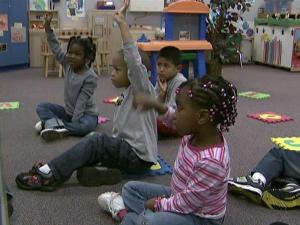Education is the key out of poverty. How then do you make cuts to pre-k programs? When do you discard associations between a good basic education with economic progress, when the economics of individual households is dependent on the investment made in an education. The adage that the poor enjoy life in lack is just not true. Poverty is a place you “survive in”; you never “live in”, it.
The willful desire to learn with its culture of curiosity and experimentation, is what has made this country the best resourced Republic in the world. Whether cuts are made to Smart Start, More at Four or other early childhood education programs, the impact to communities across the state will be felt in economic outcomes both now and in the future. Families without the resources, will be unable to make learning happen where cuts exist and the economic toll this will take on low wealth communities, can already be measured.
Yes. Leadership has a responsibility to ensure the fiscal health of the state. Such health, cannot, however, be defined by short term partisan gain, but a longer-term gain that takes into consideration the very best use of public dollars with its true investment value, to be calculated by future potential.
Kids are the future of the state. Their promising glory is first as a learned citizenry, confident and fully proficient. When less resourced kids are left to the mercy of legislators whose fiscal priorities cut critical educational needs, all things are placed at greater risk.
Intelligence is not an affluent privilege. If you chart the poor and the more affluent along intellectual tables, you will find that the greatest variance has to do more with early education opportunities, with an ability to seize enriching opportunities.
How then do we get legislators to understand that the best defense against a budget out of control, is a good sound education. And, that education begins when the baby is born with deference for ages birth to three. Research has “unmined” the brilliance of learning. A child is capable of unleashing and enriching their intelligence very early in life. If you miss harnessing intellectual potential early, the child is at greater risk of ills that expand beyond the context of school.
